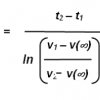@Duchykins
Thanks for the condescending tone, but, you don't need to convince me of science.
I never said life developed unnaturally... quite the opposite. My point is, when people focus on the probability argument they seem to convey that life isn't a natural part of the universe like stars. That's what I'm trying to get across. Like life is a stroke of luck, rather than as normal as stars existing. That's why I said the probability argument actually makes you feel more special. You were lucky life formed on this planet, considering the odds might be .000000000001% !! As if you won a lotto. That's a certain way of viewing our existence. On the other hand, if life is just a integral part the Universe, the odds it appears here and not there aren't really that important.
[In fact, given the initial conditions of the Universe, or, its "DNA"- the odds were 100% that we are here and now. "With perfect knowledge of the initial conditions and of the relevant equations describing the chaotic system's behavior, one can theoretically make perfectly accurate predictions about the future of the system" -Wikipedia] But you can ignore the bracketed sentence as it might cause you high blood pressure.
Are you getting the angle this is coming from?
I view life as more of a inherent part of this place, rather than an aberration due to the vast possibilities that exist. I am NOT arguing that some God had to magically place life onto a planet or something. Take "God", whatever that is, out of this. I view the Universe more like a plant that grew out of a seed. No God has to sit there and command the plant to grow. lol.
So sure, I will stand in disagreement to say that there is an underlying order to the Universe, like the DNA of a plant, rather than everything being one giant accident due to the infinite dice rolls of existence. Something like that. And life is just as much part of that "DNA" as stars and galaxies.
I am comfortable to "stand alone" and say that life is all over the place. Given that there are 10^22 stars in the universe, even with tiny odds of there being life orbiting a star, you still end up with a lot of life existing in the Universe.
And again I'd say natural beauty is my source of 'religious' belief. In the sense of believing that I belong here, I'm not just some soon-to-die statistical aberration blasting through space at thousands of miles per hour.
Part of me thinks this is just a clash between left-brainers and right-brainers with different ways of interpreting the same thing. Being on the right-brain side, I see the left-brainers missing out on the best parts of life, the parts that differentiate us from computers. From their perspective, I'm an uneducated fool who talks about his feelings and aesthetic impressions alongside scientific realities.
Edited by JohnBonham, 01 June 2014 - 02:17 AM.

















































